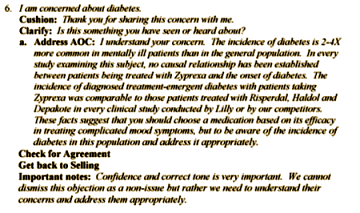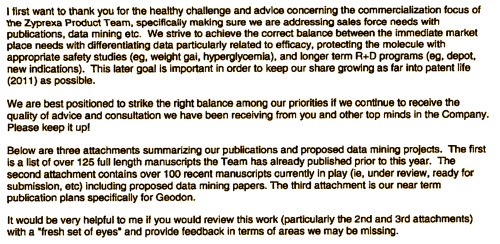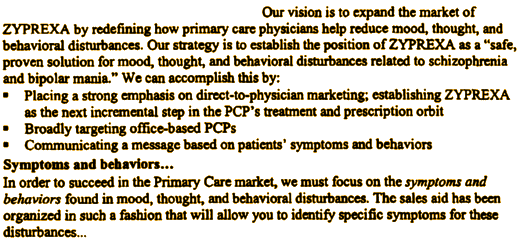- Dr. Breier has served on advisory boards or as a consultant for Amgen, MedAvante, Takeda, and Teva, and he is a former employee of Eli Lilly. Dr. Freedman has reviewed this editorial and found no evidence of influence from these relationships.
Alan Breier
VP Medical, Chief Medical Officer – Eli Lilly & Co.Alan Breier, M.D., was named vice president for medical and chief medical officer for Lilly in August 2003. He is a member of the Lilly Research Laboratories policy committee and the company’s senior management council. Previously, Breier was a Lilly clinical research fellow, Zyprexa® product team leader, and vice president of pharmaceutical products for Lilly. Breier received a bachelor of arts degree, summa cum laude, from the University of Toledo (Ohio) in 1975. He received a doctor of medicine degree in 1980 from the University of Cincinnati School of Medicine. He served as a resident in psychiatry from 1980 to 1984 at Yale University School of Medicine.
Prior to joining Lilly, Breier completed a three-year research fellowship at the National Institute of Mental Health [NIMH] Intramural Research Program [IRP] and then became chief of the outpatient research program at the Maryland Psychiatric Research Center and associate professor of psychiatry at the University of Maryland School of Medicine. In 1993, he was recruited as chief of the unit of pathophysiology and treatment at the NIMH IRP, and then promoted to chief of the section of clinical studies. At the NIMH, he established a research program investigating the causes of schizophrenia and development of new treatments for this illness. Breier joined Lilly as Lilly research fellow for Lilly Research Laboratories, a division of Lilly, in March 1997, the same year he was appointed adjunct professor of psychiatry at Indiana University School of Medicine in Indianapolis. The next year he was named team leader of the Zyprexa product team at Lilly. In 2000, he became adjunct professor of psychiatry at the University of Maryland School of Medicine.
Breier is the recipient of many awards, including the A.E. Bennet Award from the Society of Biological Psychiatry; Yale’s Lustman Award, which he won three times; and the Joel Elkes International Award from the American College of Neuropsychopharmacology for outstanding contributions to psychopharmacology. He is on the editorial board of scientific journals and has an extensive publication record totaling more than 200 scientific articles. He is included in The Best Doctors in America. Breier is editor of the books: The New Pharmacotherapy of Schizophrenia, Olanzapine (Zyprexa): A Novel Antipsychotic, and Current Issues in the Psychopharmacology of Schizophrenia.
or this:



In these examples from Dr. Breier’s tenure as team leader for Zyprexa, doctors were being encouraged to treat grave psychiatric syndromes symptomatically and avoid expert consultation; equally grave adverse effects like obesity and diabetes were being denied or minimized; and our scientific literature was being flooded with articles jury-rigged to increase Zyprexa sales. He was in that position for a decade, up until three years ago. He left six months before Lilly admitted to a crime – promoting its drug Zyprexa for uses not approved by the Food and Drug Administration – and paid the largest fine in history for the behavior of the team he directed.



Thank you for providing the more accurate disclosure of COI.
I know this following request isn’t the usual topic of the blog, but I hope that you or another psychiatrist might entertain it as a post:
At this juncture, what is/are optimal course(s) of action for people to take when they are interacting with mental health prescribers?
I can’t distinguish between medicine and snake oil, between therapy and quackery, and between patient advocacy and patient coercion and deceit.
You have made it plain that everything and everyone is eminently “highly treatable”. In other words, suckers, marks, targets, and market share.
Today, the Dean at Harvard Medical School announced a brand spanking new effort to develop more drugs using, it appears to me, to be an all out COI model. Here’s the link: http://www.focushms.com/features/transforming-drug-development/
Indeed, it’s transformational. /sarcasm